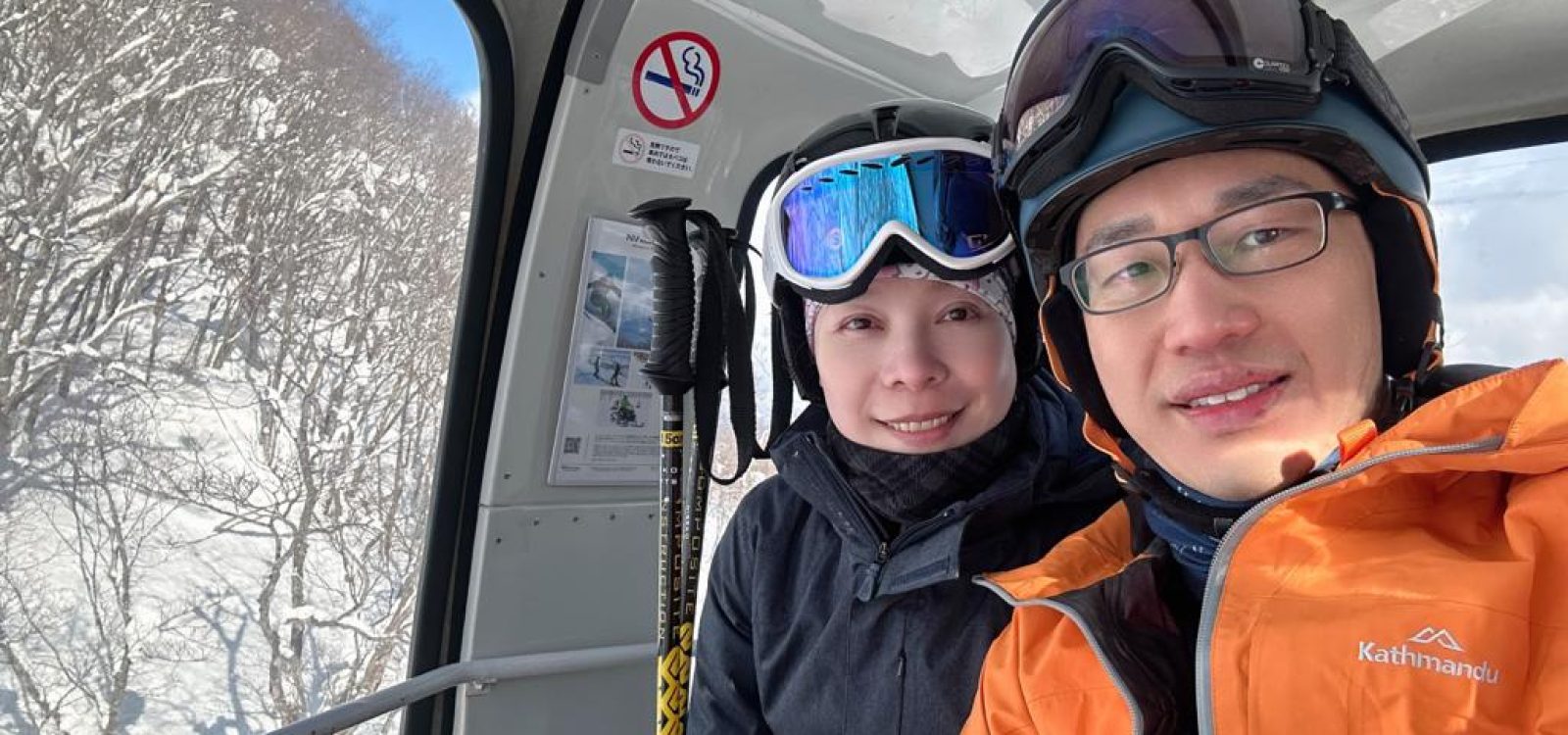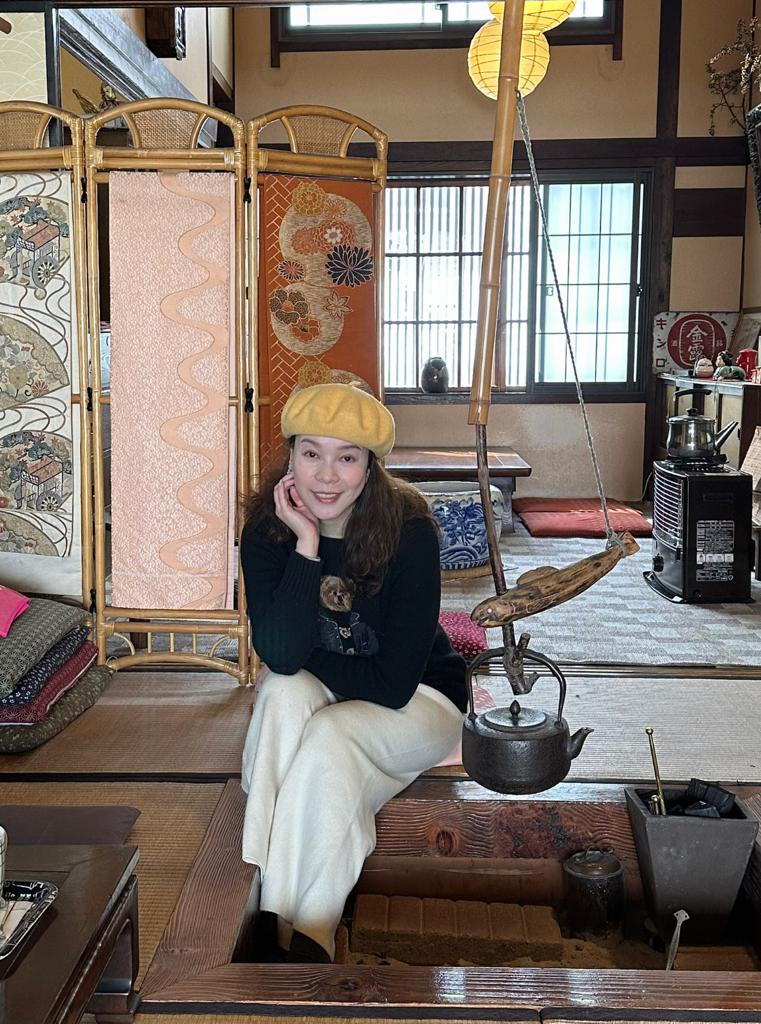
Under the Spotlight with Susana Pui
In celebration of International Women’s Day, Susana Pui, Group Head of Reserving, Peak Re features in a special Under the Spotlight series to share her career journey so far and insights into how women can excel within their careers.
If I had to describe myself in one sentence, I would say that I am a people-loving extrovert, secret perfectionist and knitter!
My love for knitting began when my mum taught me how to knit when I was nine. Throughout the years, I’ve continued to knit as I’ve found it relaxing and therapeutic – I’ve knitted many baby garments for friends and family over the years.
I’m also a keen skier but even after four years, I would classify my skillset as green 😅. One day, I’ll overcome my fear and ski down a black run.
My career journey has spanned over my years and sectors. I worked in the general (re) insurance sector for over 20 years, spent 10 years working in a consulting firm, 4 years in reinsurance optimisation, reinsurance pricing and economic capital modelling, another 4 years performing in-house traditional actuarial work and 4 years in risk management. Now I lead the reserving and IFRS17 function for the group office at Peak Re.
I became an actuary coincidentally as my love of analytical thinking and hard work ultimately determined my career path. As a university student, I loved sitting exams – as strange as it sounds – and when considering a major, I wanted to choose something that I would not only enjoy but something that would provide job security which is why statistics seemed like a suitable choice!
I received a Bachelor’s Degree with First Class Honours from the University of Otago in New Zealand. At the time, New Zealand did not offer actuarial degrees and quite frankly, I hadn’t heard of actuarial studies. After graduating from university, I travelled to Melbourne and stumbled across a job advertisement by Taylor Fry. At the time, I didn’t know what an actuary was but was successful in my application. As they say, the rest is history…
After joining Taylor Fry, I started the Part 1 actuarial exams and now hold three actuarial qualifications – FIAA, CERA and FASHK (Fellow of Actuarial Society of Hong Kong).
The most interesting thing about my current role is the complex yet fascinating nature of reinsurance. Leading the reserving function (overseeing both general and life insurance) for the group office at Peak Re, my teams are also responsible for implementing IFRS17. The volatile reinsurance/ retro market cycles combined with the more frequent catastrophic natural events makes my job more challenging but also very interesting.
I love that my current role allows me to work with experts from different fields – like underwriters, cat modellers, meteorologists, economists, life actuaries, claims officers, accountants, medical doctors and lawyers – just to name a few.

As an actuary, I think the most valuable skill we can possess is looking beyond the numbers. Numbers are important but often, they only tell us half of the story. To get the full picture and put things in the business context, we need to talk to different subject experts to understand the non-actuarial technical side. The soft information would help us make more informed decisions on choosing appropriate actuarial methodologies, setting actuarial assumptions and checking the reasonableness of the modelling results. As an added benefit, it will improve our soft skills and help broaden our knowledge and exposure.
For younger actuaries, the best piece of advice that I can share is to find a great mentor and learn humbly from them. Throughout my career, I was incredibly blessed to have met many mentors like Martin Fry and Daniel Smith (Taylor Fry), Michael Owen and Matthew Tong (Guy Carpenter) and Questor Ng (FWD).
These mentors encouraged me to explore the impossible; step outside of my comfort zone and generously shared their vast knowledge with me. They also gave invaluable insights into my strengths and shortcomings that broadened my horizons and shaped my personal development and career path.
I would also encourage younger actuaries to consider becoming a mentor to others. You’ll learn valuable lessons along the way such as empathy, communication, and the importance of different perspectives.
I believe that the biggest growth opportunity for actuaries based in Asia lies within Asia itself as a rapidly growing region. Be it traditional or non-traditional, the demand for actuaries with great communication and analytics skills is very high.
For those actuaries considering working in Asia, it’s vital to be open-minded about the different work-culture. Longer working hours are common but it’s a tremendously rewarding experience.
Reflecting on this year’s International Women’s Day theme of an innovation and technology future for all, it would be great to see the removal of the gender labelling – or any for that matter – so we can focus on the talent and innovations that a person can offer rather than gender expectations or assumptions. This would allow everyone to be given equal opportunities to excel.
To implement diversity strategies successfully, I believe that senior management needs to take a proactive lead and ensure that their message is fully aligned with their actions.
The women that inspire me the most are my mother and my Auntie Pat. My mother and Auntie Pat both came from grass-root families where the idea that women didn’t need an education and their own voice was the norm. That’s why my mother and Auntie Pat instilled the values of hard work, education and independence into me and taught me to embrace myself and be confident that my abilities were just as capable as those of my male counterparts.
As women, I think we try to have it all. It took me years to figure out the delicate balance between career, personal life and passions. I won’t say that I’ve mastered it just yet, but I am continuously getting better at it. One trick that I learnt is to set clear boundaries that allow me to focus on work when I am at work. Then when I’m with my loved ones, I can give them my full attention. I’m also very blessed to have a husband who is very supportive of my career which makes the balancing act so much easier.
When mapping out what your career path looks like, the first thing that I would suggest is making a short-term plan (three or so years) rather than a long-term plan. The mapping should include tangible goals and a plan that outlines how you’ll achieve these goals with a clear timeline. It also helps to share your career plan with your mentors for their input. It may seem simple, but this method has helped me achieve the career goals I’ve set in the past 12 years.
For those seeking mentors, there are many ways in which you can do so. In my experience, the mentors I met were through work. Sometimes they would just happen naturally and other times, I would directly ask if they would take me on as their mentee. The key is not to be shy and to be proactive in catching up with your mentor regularly.
The most significant barrier to female leadership is our tendency not to give ourselves enough credit. We also tend to be too harsh on ourselves which leads to discouragement from within about putting our hands up when leadership opportunities arise. I enlisted the help of a career coach who pinpointed the root cause of my bottleneck and empowered me to break my own barriers – it was super helpful!
CPD: Actuaries Institute Members can claim two CPD points for every hour of reading articles on Actuaries Digital.






